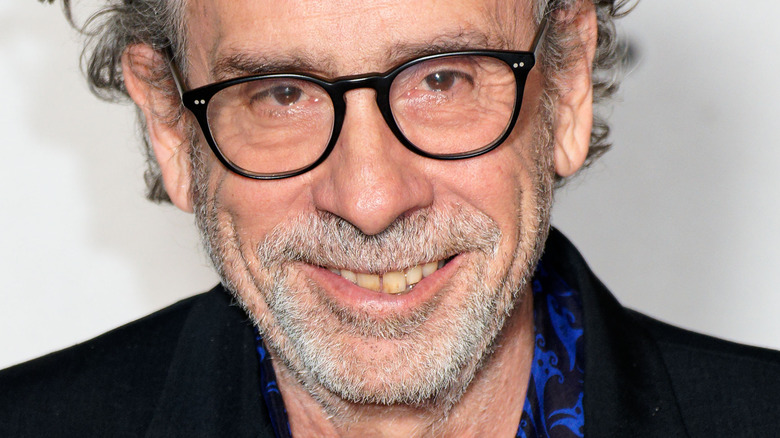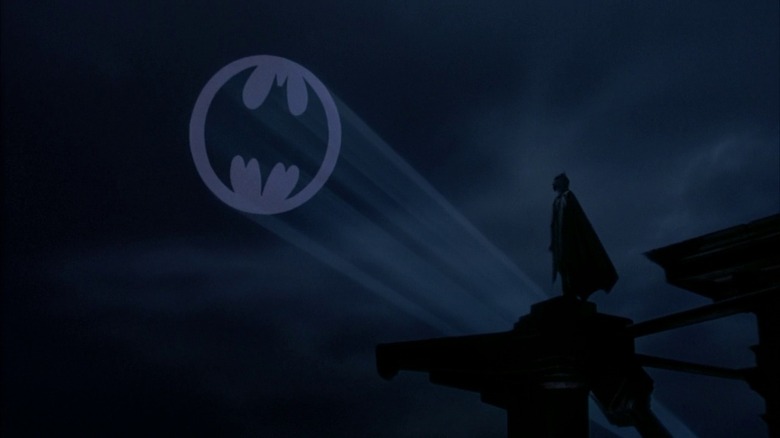Tim Burton Points Out That Batman 1989 Was Considered To Be Too Dark By The Studio
As far as comic book characters go, few have seen as many iterations as Batman has. From the contemplative detective of "The Long Halloween" to the Superman fighting crusader of "The Dark Knight Returns," there are countless different takes on the hero. Still, one of the first and most notable efforts to bring the character to a new medium came in Tim Burton's 1989 film.
"Batman" is basically the progenitor to all of the modern comic book-based superhero movies that continue to dominate the box office to this day. While many writers and directors have been given carte blanche in this day and age to take these characters in all kinds of different directions, Burton still recalls a moment in time when even the most basic choices he made about his film were criticized. Though this might seem especially silly in an age where we've seen Batman do all kinds of questionable things on the silver screen, Burton remembers even his version of the character being seen as too dark.
Tim Burton compares his too-dark Batman with others
Today it's not out of the ordinary to see Batman nearly beat a man to death, as occurs in the final moments of Matt Reeves' "The Batman," but Tim Burton can recall being at odds with studios over his dark-and-gritty-for-the-era take on the Caped Crusader that now looks campy and playful by today's standards (via Deadline). "The thing that is funny about it now is, people go, 'What do you think of the new Batman?' and I start laughing and crying because I go back to a time capsule, where pretty much every day the studios were saying, 'It's too dark, it's too dark.' Now [1989's "Batman"] looks like a lighthearted romp."
Anyone who's seen the two films will instantly understand what Burton is getting at here. For instance, the 1989 "Batman" has Jack Nicholson's Joker dancing to a Prince song while vandalizing a museum. Meanwhile, Reeves' take on the mythos has a Zodiac-inspired Riddler violently murdering government officials and making videotapes of the killings. Still, Burton had other memories about how things were different back then as well.
"When I first did Batman, I'd never heard of the word 'franchise,'" Burton went on. "After that, it became something else." Regardless of what modern viewers might think of Burton's film today, the project definitely helped to blaze the trail for some of the biggest movies in cinematic history.

